BE PART OF SOMETHING GREAT!
Welcome to the PH Athletic Boosters Association
Show your support and join the Patrick Henry High School Athletic Boosters Association today.
Joining or volunteering at ANY level sets a great example and supports all PH students.
GO PATRIOTS!
Purple Patriots
Special thanks to Our Lifetime Purple Patriots, Mellow Mushroom, MKB Realtors, and Crunch Fitness!!
We would like to recognize these Purple Patriots for their long-term commitment to PH Athletics. With their generous support, we funded the new Main Field Scoreboard, allocated start-up funds for AI Technology initiatives designed to improve the experiences for our students and athletes, and kick-started new student-led initiatives at the school to help all of those we serve reach the next level.
Follow Us on Social Media
Find the Latest PHABA News on Instagram
The Patrick Henry Athletic Boosters Association Instagram page is a vibrant hub for Patriots fans and supporters, sharing updates on sports events, highlighting the CRUNCH and Mellow Athletes of the Week, and celebrating the community's spirit. With regular posts about upcoming games, results, fundraising events, and volunteer opportunities, the page keeps followers engaged and informed. It also showcases the impact of booster support on student-athletes, featuring photos of new equipment, facility upgrades, and community gatherings that make PH Athletics thrive.
WHAT WOULD YOU LIKE TO DO?

MEMBERSHIP
Order Booster
Passes

SPIRIT WEAR
Order shirts, hats, pullovers,
decals, and more
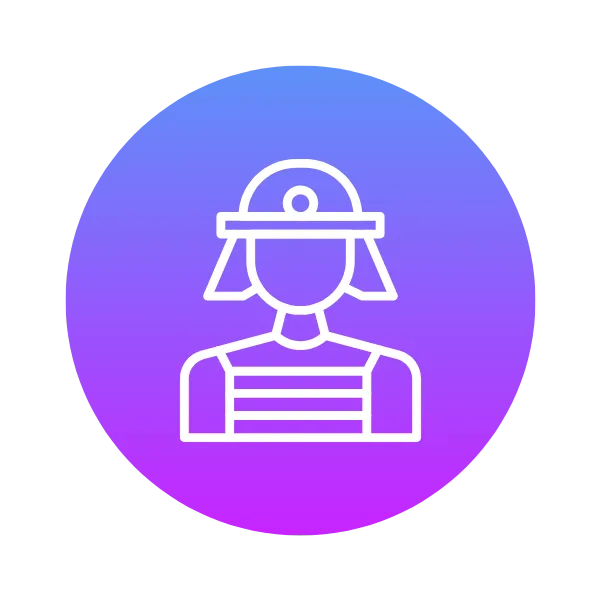
VOLUNTEER
Support students with as little
as 2 to 3 hours per year

STADIUM BANNERS
Customize a stadium banner
to support your player & team

DONATIONS
Donate to provide financial support
for student-athletes

SPONSORSHIPS
Business sponsorship opportunities
supporting the PH community
NEWS & EVENTS
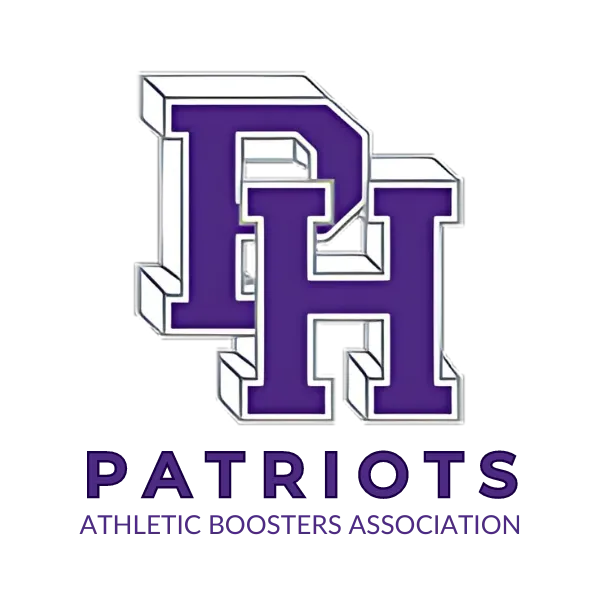
2025 PH Golf for Good
Charity Golf Tournament.
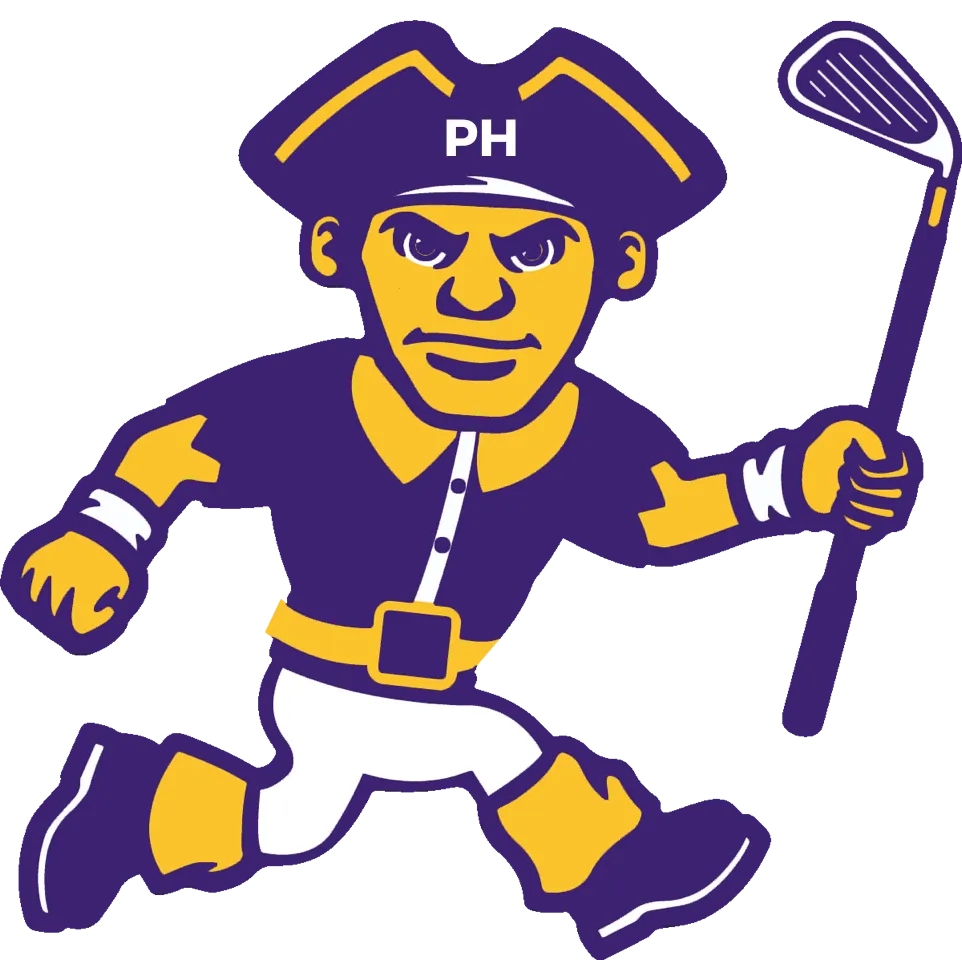

Roanoke Country Club
Home to the PH Swinging Pattys Golf Team and the Annual Golf for Good Charity Classic.
For over fifty years, the Swinging Pattys have been fortunate to call RCC home. With top-notch practice facilities and playing conditions in the Valley, RCC enables the Patriots to spend hours on the range and on the course. We appreciate the fine work of Tim McAfee and his staff as they help us host River Ridge District Varsity and JV matches, as well as the annual PH Golf for Good Charity Classic Captain's Choice Tournament, which raises money for PH Athletics.
2026 Silver Patriot Sponsorships
Three Available @ $1500 ea. (each comes with a foursome)
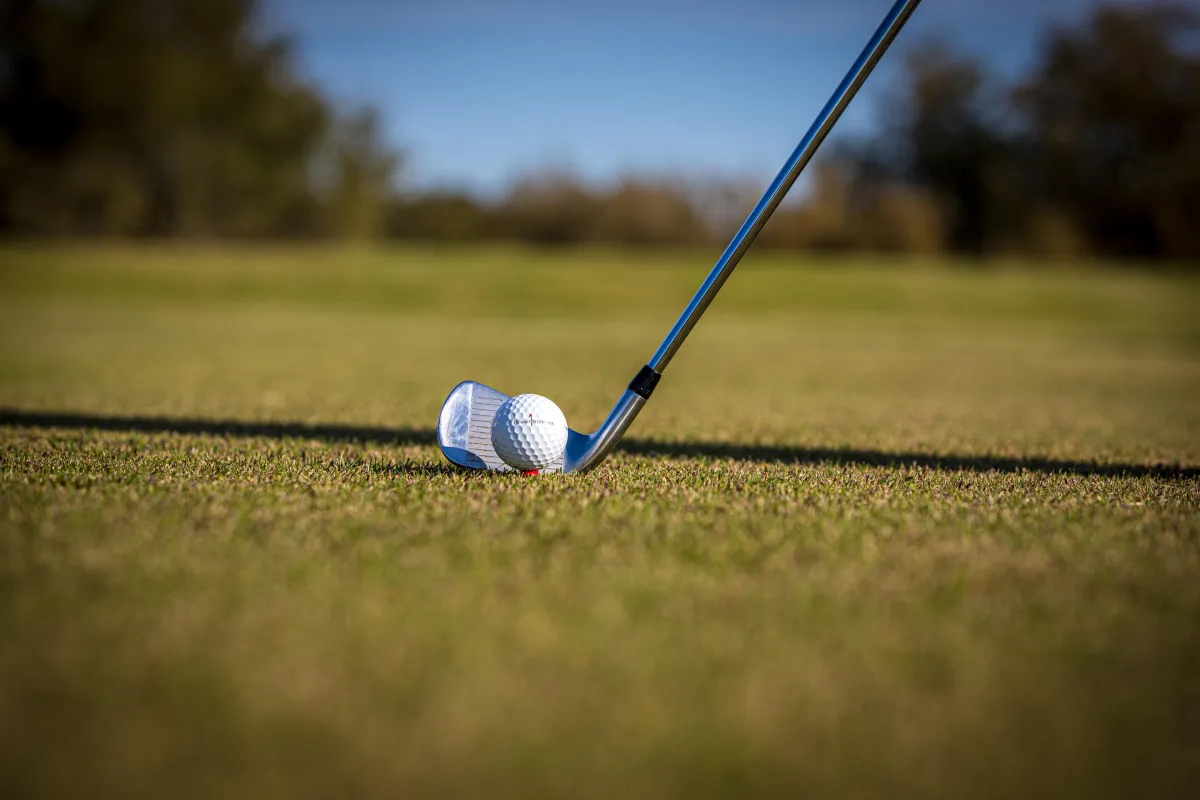
Hole in One
Sponsor the most exciting moment on the course!
Benefits:
On-Course Visibility: Prominent signage at the designated hole.
Branded Prize: Sponsor a premium prize (car, cash, vacation, etc.).
Logo Placement: Featured in event materials and digital promotions.
Recognition: Shoutouts during the event and on social media.
Networking: Access to players, sponsors, and attendees.
Align your brand with excellence—contact us to secure this sponsorship!

Pin Flag Sponsor
Your brand in the palm of their hand!
Benefits:
On-Course Visibility: Custom pin flags with your logo on all 18 holes.
Brand Exposure: Seen by every golfer and spectator throughout the tournament.
Logo Placement: Featured in event materials and digital promotions.
Recognition: Shoutouts during the event and on social media.
Networking: Access to players, sponsors, and attendees.
Leave your mark on every hole—contact us to secure this sponsorship!
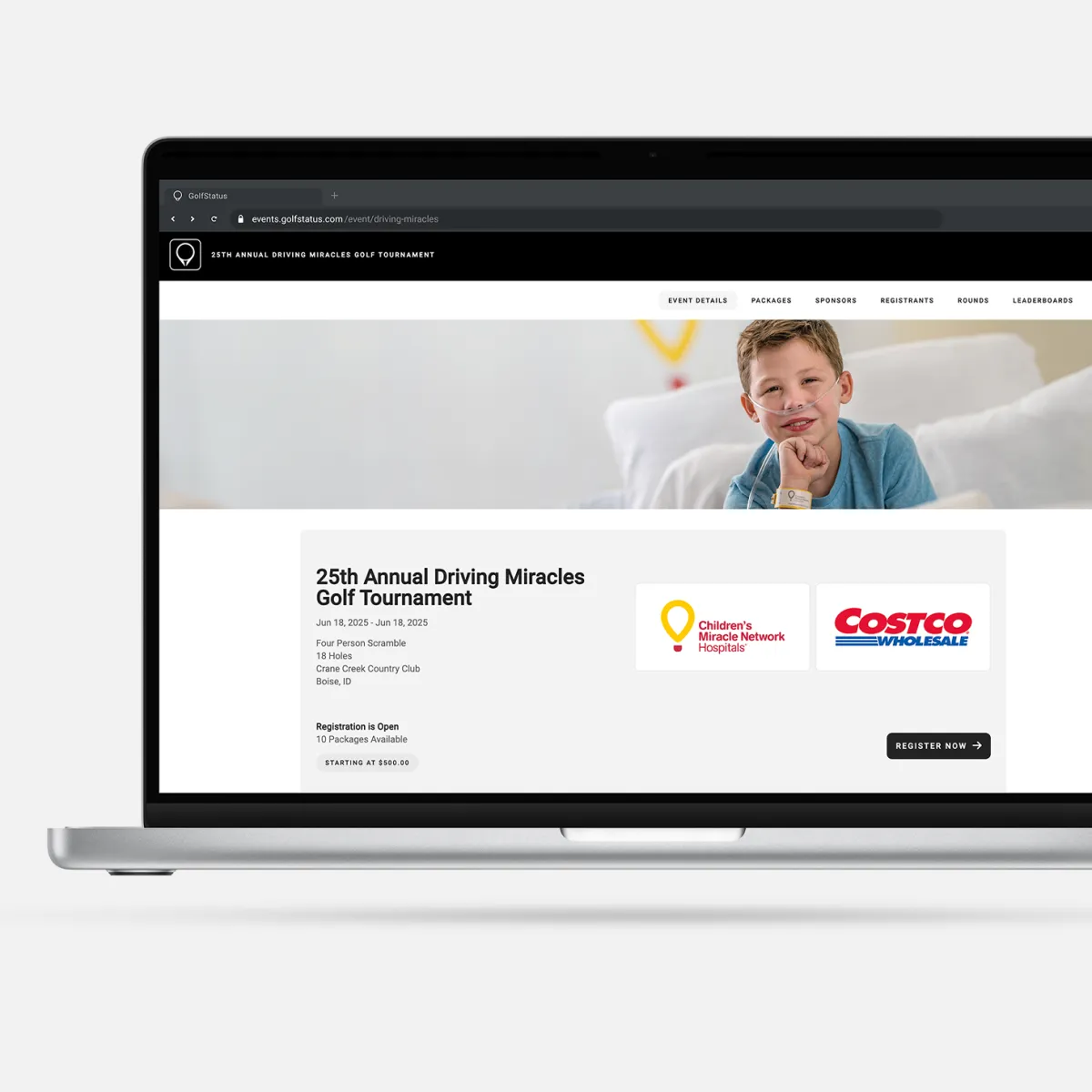
Technology Sponsor
Through the technology sponsorship, businesses and corporate entities build goodwill for their brand through the charity golf tournament, gain premium exposure to a desirable audience across multiple channels and touchpoints, and support important causes Patrick Henry sponsors across multiple sports.
Benefits:
Logo On the Event Website HomePage
Logo On All Event Printouts & Signage
Hole by Hole Exposure in The In-App Scorecard
In-App Leaderboard Exposure
Live Leaderboard Exposure Online and on Display
Custom Email and Push Notifications
Align your brand with online and on display—contact us to secure this sponsorship!
Gold Patriot Sponsorships
Supporting PH Athletics and Air Force JR ROTC

All Play Ball - Player Profile Sponsor - $3000
(Includes 7-Night Oak Island, NC Beachfront Staycation)
Available: Spring (March - May) | Resort (August - November)
Patrick Henry High School has teamed up with WinShares, Inc. to lead the way in making AI Sports Technology more accessible and appealing to a diverse audience in Roanoke City. Through the partnership, Patrick Henry is emphasizing inclusivity and authenticity in access to opportunities for all students to explore careers in sports science, sports marketing, and more. With technology to serve sports across all seasons, Roanoke City will become a leader in the advancements in sports for many more of our students and athletes. ⚽🎾🥍⛳🏐⚾🥎🏀
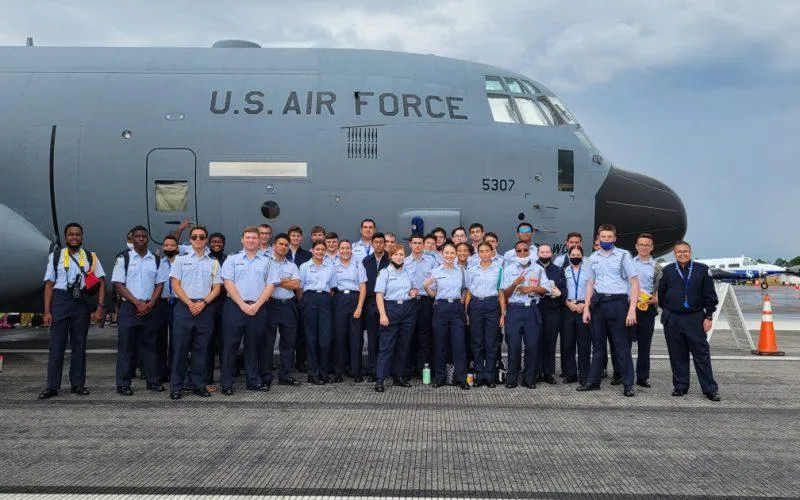
PH AFJROTC SPONSOR
Advance Education in Aeronautical Science - $500
Your support helps fund attendance for our cadets at the STEM Day Air Show in Hampton, VA. At the Air show, cadets tour multiple aircraft such as the C-130 and the A-10, and other advanced military aircraft in use today! The significance of this trip is to enable our cadets to have a fun experience as they learn about the principles of flight. All the cadets that attend have an eye-opening experience of being a real pilot and are encouraged to continue their future in aerospace and aeronautics.
Purple Patriot Golf Sponsorship
Supporting Golf Development, Camps, and Clinics Throughout Roanoke City
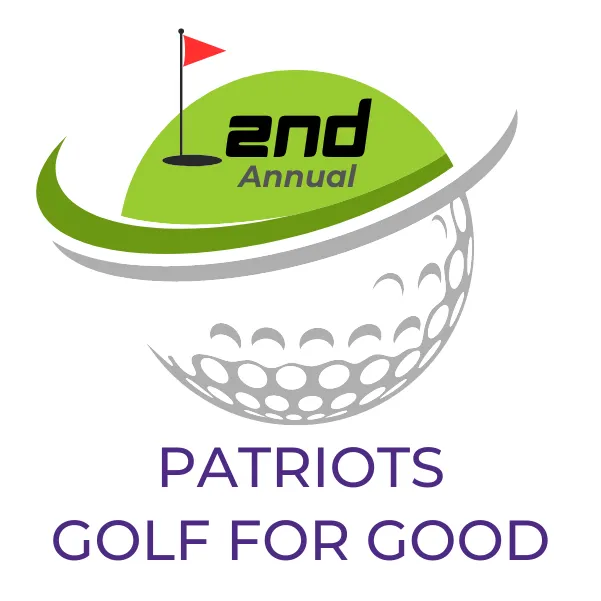
Tournament Title Sponsor - $7500
Be the premier sponsor of our tournament!
Benefits:
Event Naming Rights: Your company name/logo featured as part of the tournament title.
Top-Tier Visibility: Prominent branding on all event signage, marketing materials, and digital promotions.
Exclusive Recognition: Acknowledgment in opening/closing remarks, press releases, and social media campaigns.
Prime Networking Access: Opportunities to connect with players, sponsors, and VIP attendees.
Custom Activation: Opportunities to host branded experiences or giveaways at the event.
Includes two (2) foursomes, company promotion for 1-year on all PHABA communications, tournament promotion, on-site promotion - live scoring/scorecards/pin flags, banners on Main Field and Gym, and a one-night Stay & Play Package for Dormie Network)

PH Indoor Sim Lab Naming Rights - $12,500
Sponsorship provides 5-Year naming rights for the new, state of the art SkyTrak+ Golf Simulator Bay at Patrick Henry, completing the makeover of our current indoor space. With it, Patrick Henry is emphasizing inclusivity and authenticity in access to golf for all RCPS students throughout the year. Camps and clinics introduce kids throughout Roanoke City to the great sport of golf.
Includes two (2) foursomes and a Dormie Network One Year Membership.
The Purple Patriot Golf Sponsorship Includes a
1-Yr National Membership to the Dormie Network
(Some Restrictions Apply. Learn More | Certificate)
Dormie Network - A home club wherever you want to go.
Please contact Chuck Beasley, VP of Fundraising and Sponsorships, PH Golf Coach and Founder/CEO of WinShares, Inc., with event questions or for additional sponsorship information. [email protected] | (540) 314-7384
The PHABA is a nonprofit, tax exempt organization under IRS Section 501(c)(3).
EIN: 54-6054540
Contact Us © 2024 | PHABA | All Rights Reserved
2102 Grandin Rd SW, Roanoke, VA 24015


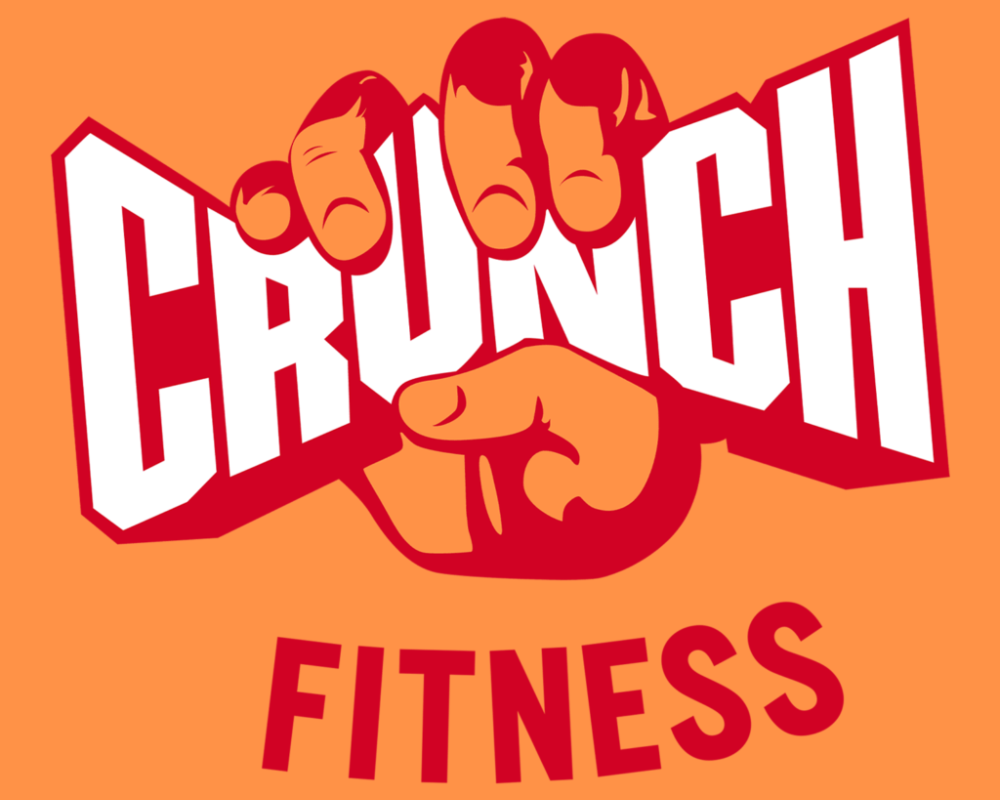
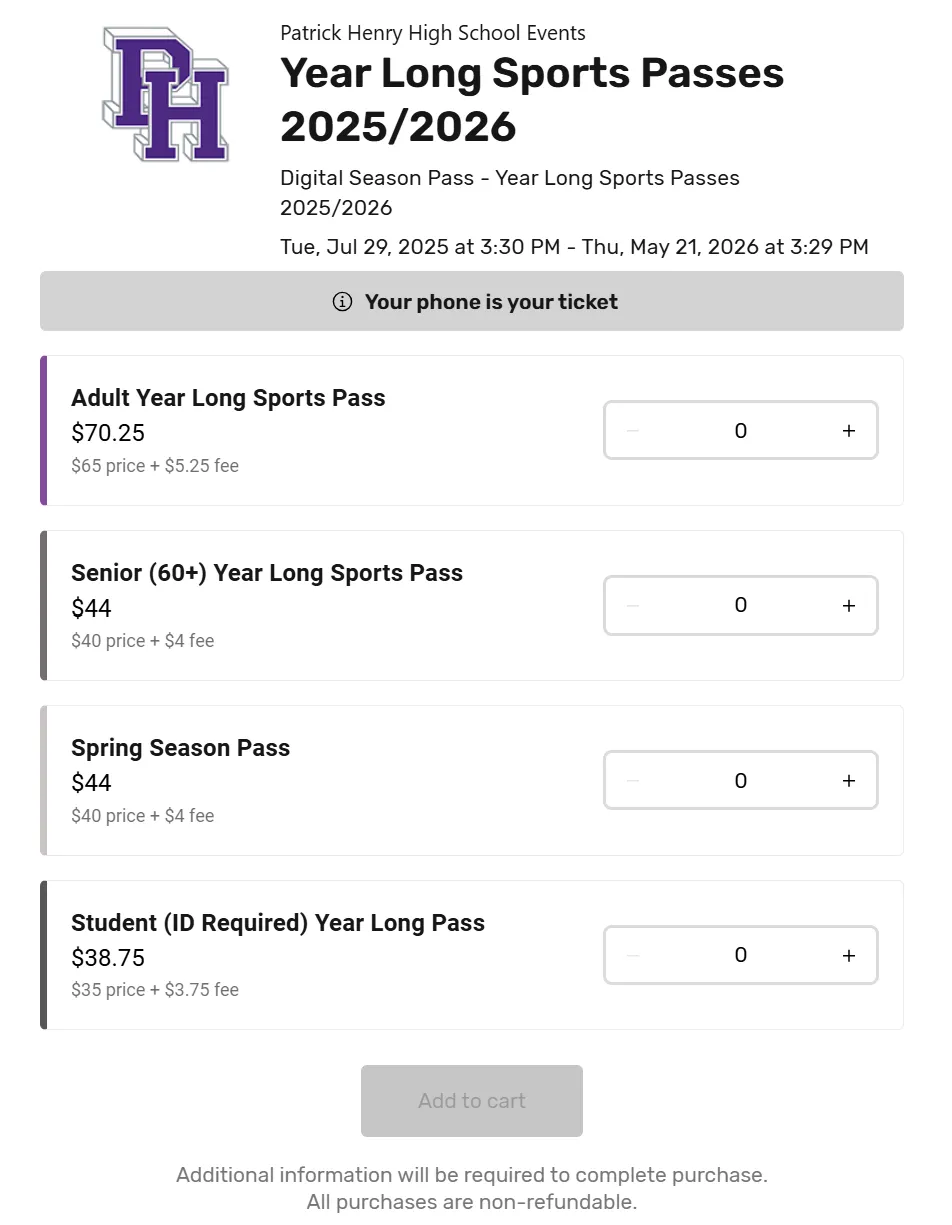
Facebook
Instagram
X
LinkedIn